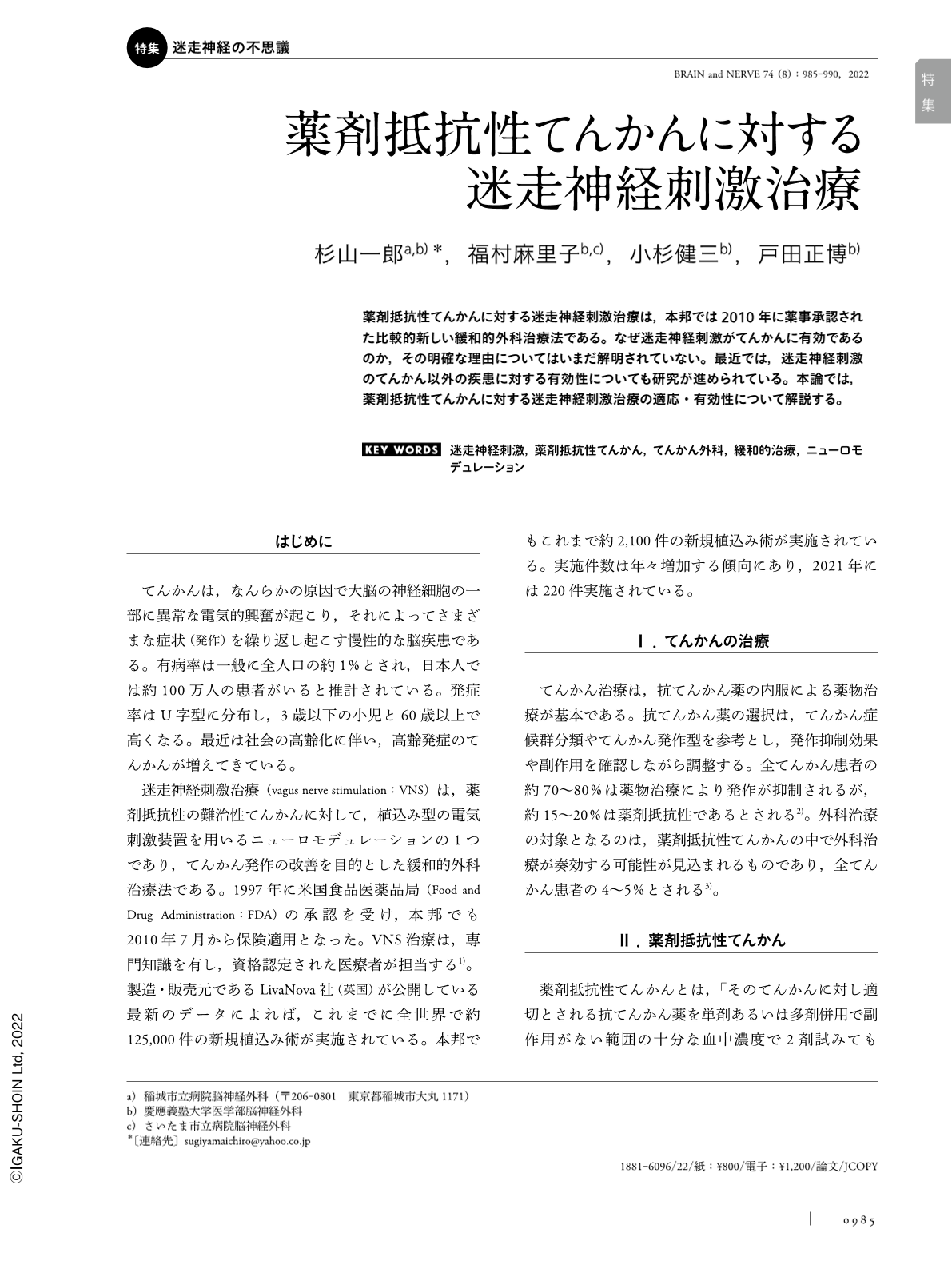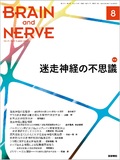Japanese
English
- 有料閲覧
- Abstract 文献概要
- 1ページ目 Look Inside
- 参考文献 Reference
薬剤抵抗性てんかんに対する迷走神経刺激治療は,本邦では2010年に薬事承認された比較的新しい緩和的外科治療法である。なぜ迷走神経刺激がてんかんに有効であるのか,その明確な理由についてはいまだ解明されていない。最近では,迷走神経刺激のてんかん以外の疾患に対する有効性についても研究が進められている。本論では,薬剤抵抗性てんかんに対する迷走神経刺激治療の適応・有効性について解説する。
Abstract
Epilepsy is a neurological disorder with abnormal brain activity. It causes convulsions or periods of unusual behavior, sensations, and sometimes loss of awareness. Drug-resistant epilepsy (DRE) affects an estimated 15%-20% of patients with epilepsy. Vagus nerve stimulation (VNS) is a type of neuromodulation. VNS therapy is an adjunctive neurostimulation treatment for DRE patients who are unsuitable for respective surgery or have experienced unsuccessful surgery. VNS involves the use of a device to stimulate the vagus nerve with electrical impulses. VNS is not a cure for epilepsy, and most epilepsy patients can still experience seizures or use epilepsy medication after the procedure. However, 60%-70% of patients can have over 50% reduction in seizures 5 years after the VNS procedure. Seizure intensity may also reduce. VNS is safe with tolerable side effects in most cases. The mechanism of VNS action against epilepsy is still not accurately verified. Some people believe that VNS therapy improves their mood, memory, or alertness and may also help reduce depression. VNS therapy is also expected to work in other indications, including psychiatric, gastrointestinal, endocrinological, and immunological disorders.

Copyright © 2022, Igaku-Shoin Ltd. All rights reserved.


